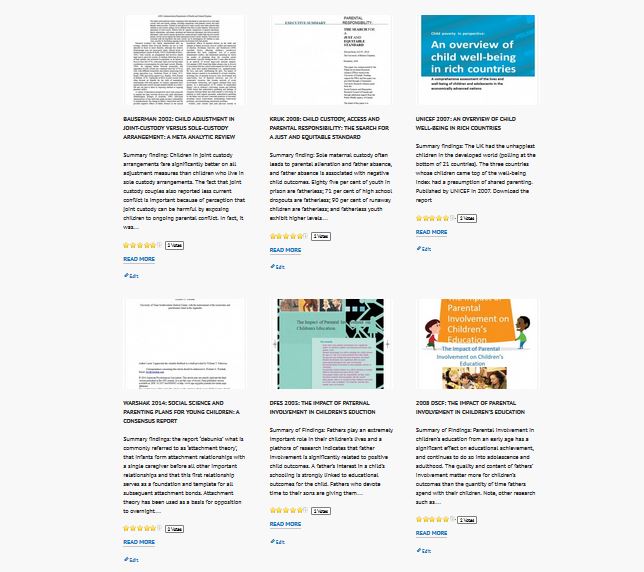On occasion during family law proceedings and when campaigning, you come across theories and beliefs which are contradicted by a wide body of research.
Some hold a view that while the quality of contact is important for children, the quantity is unimportant. Others have argued that overnights for very young children away from a primary attachment figure is harmful. More daft are theories it harms brain development. Some point to reform in Australia and the introduction of a presumption in shared parenting having been unsuccessful. Something links these beliefs… they’re misinformed and/or just plain wrong.
Today we launch a new section to our site – Shared Parenting Research.
When we argued for the reform of relocation related law, we used child welfare related research to underpin our arguments. Children do best when subject to post-separation shared care arrangements. This doesn’t require a mathematical 50/50 division of time (that’s equal parenting time… the two are different), but it does require the substantial involvement of both parents in the child’s life, and the child having substantial physical time in the care of both parents.
Children’s educational and social development, mental health and physical health are best supported by post-separation shared parenting. The opposite can be harmful! We don’t expect you to take our word for it though… read the research!


